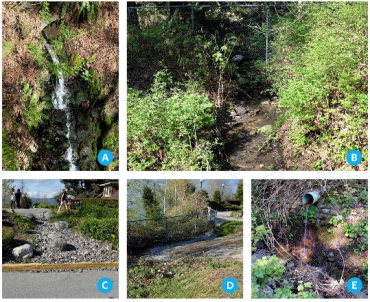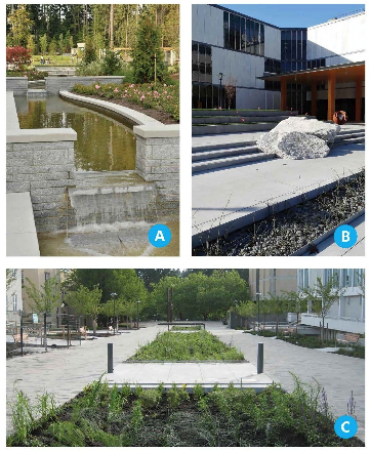Approximately 5 billion litres of water that falls on the UBC vancouver campus every year. The ISMP aims to manage this water and mitigate stormewater risks by incorporating the natural water cycle into its approach.
This approach uses stormwater as a resource that enhances our campus, as opposed to treating stormwater as waste that needs to be removed through underground storm sewers. By integrating innovative stormwater management practices into our campus planning and design, we can demonstrate UBC’s commitment to sustainable development.
At UBC, the stormwater system is operated and maintained by the Energy and Water Services group while street level municipal components are managed by Building Services. The SEEDS Sustainability Program as well as various Campus as a Living Lab research projects create and study stormwater management efforts on the campus that help inform future policy and plans.
Stormwater Challenges
Over the last 20 years, rapid development at UBC has made it challenging for the campus stormwater system to handle increased water runoff as buildings, hard landscape features and paved roads prevent rain from being absorbed naturally into the ground. Erosion of the nearby cliffs in Point Grey, potential flooding during storms, and the quality of stormwater when it leaves campus are additional issues that need to be addressed.
Stormwater Uses
Stormwater at UBC is used to irrigate landscaped areas, and in water features with planted vegetation that naturally cleans the water. Structures included in this approach include green roofs, cisterns and water detention basins to control water flow and promote absorption, and bioremediation and sediment control to improve water quality.
Several areas on the UBC campus illustrate our efforts to advance stormwater management approaches and systems.

